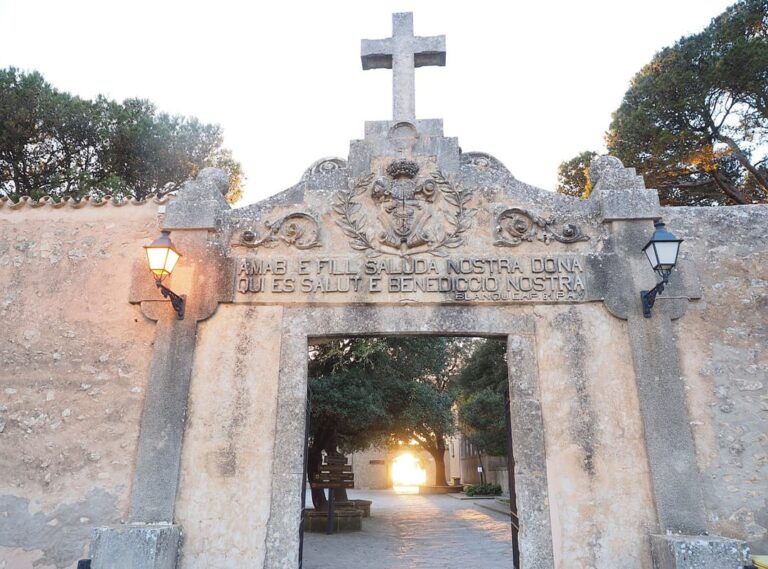Franciscan monasteries have long been recognized not only as centers of spiritual life but also as hubs of social work and charitable activities. Established by Saint Francis of Assisi in the early 13th century, the Franciscan Order has always emphasized humility, service, and compassion. These core values extend into their work with the marginalized and underserved, demonstrating a profound commitment to social justice and community support. This article explores the role of Franciscan monasteries in social work and charity, illustrating their impact on various communities. The revered Czestochowa Black Madonna, an enduring symbol of compassion and protection, serves as a reminder of the spiritual commitment that inspires these efforts.
Historical Foundations of Franciscan Charity
From its inception, the Franciscan Order was founded on principles that prioritize service to others. Saint Francis of Assisi’s vision was to live a life of poverty and humility, directly serving those in need. This approach was not merely about material aid but also about fostering a deep, compassionate engagement with the most vulnerable members of society.
Throughout the centuries, Franciscan monasteries have been dedicated to addressing social issues and providing support to those in crisis. Their historical commitment to caring for the sick, the poor, and the outcast reflects the teachings of Saint Francis, who believed that true service involves personal sacrifice and genuine empathy.
Contemporary Social Work and Charitable Activities
- Providing Shelter and Basic Needs
Many Franciscan monasteries operate shelters for the homeless and provide essential services such as food and clothing. These initiatives are designed to offer immediate relief while also addressing longer-term needs, helping individuals regain their stability and self-sufficiency. - Healthcare and Wellness Services
Franciscan monasteries often run clinics and healthcare programs, particularly in underserved areas. These services include medical treatment, mental health support, and preventive care. By focusing on health and wellness, Franciscans contribute significantly to improving the quality of life for those who might otherwise lack access to such services. - Educational and Vocational Training
Education and vocational training are integral parts of many Franciscan charitable programs. By offering access to education and job training, monasteries help individuals develop skills and opportunities that enhance their prospects for a better future. This focus on education aligns with the Franciscan commitment to uplifting individuals and empowering them to overcome socioeconomic barriers. - Advocacy and Social Justice
Beyond direct service, Franciscans are also involved in advocacy work. They address systemic issues such as inequality, injustice, and environmental concerns. Their advocacy efforts aim to promote policies and practices that support social justice and the common good.
The Symbolism of the Czestochowa Black Madonna
The Czestochowa Black Madonna, an iconic image of the Virgin Mary, holds significant spiritual and cultural importance. This revered icon, housed in the Jasna Góra Monastery in Poland, is associated with protection, grace, and divine care. The Black Madonna’s image represents a deep connection to the sacred and serves as a symbol of compassion and support for the needy.
In the context of Franciscan missions and charitable work, the Czestochowa Black Madonna serves as a powerful symbol of the spiritual commitment that underpins their efforts. Her image inspires the Franciscan dedication to serving others and reflects the belief that their work is guided and blessed by divine grace.
Challenges and Future Directions
Despite their significant contributions, Franciscan monasteries face challenges in their social work and charitable activities. Issues such as limited resources, increasing demand for services, and evolving social needs require ongoing adaptation and innovation. Addressing these challenges involves not only securing financial support but also finding new and effective ways to meet the needs of diverse communities.
Future directions for Franciscan social work may include expanding collaborations with other organizations, utilizing new technologies, and advocating for systemic changes that support social equity and justice. By embracing these opportunities, Franciscan monasteries can continue to enhance their impact and fulfill their mission of service.
Franciscan monasteries have played a crucial role as centers of social work and charity, driven by the principles of humility, service, and compassion established by Saint Francis of Assisi. Their contributions to providing shelter, healthcare, education, and advocacy reflect a deep commitment to addressing the needs of the marginalized and promoting social justice. The Czestochowa Black Madonna, with her profound symbolism of protection and grace, serves as a reminder of the spiritual foundation that supports and inspires Franciscan charitable efforts. As they face contemporary challenges, the Franciscan Order’s dedication to service remains a vital and enduring aspect of their mission.











